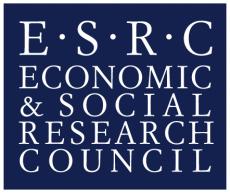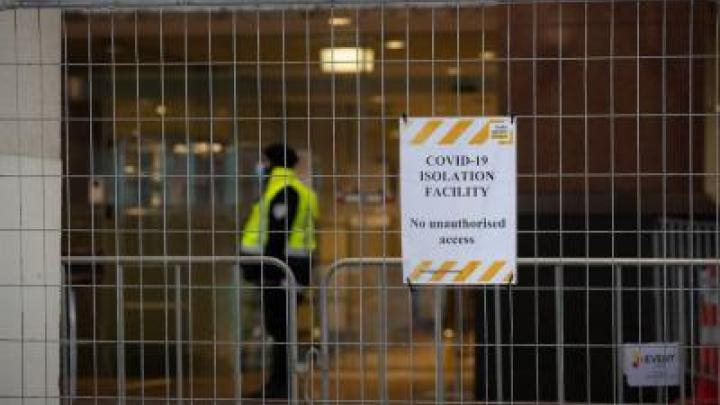‘The Silent Sentence’: The Impacts of Character-Based Deportation on New Zealander Deportees from Australia and Family Members
This article is one of a series of four representing the work of the ANZ Society of Criminology’s thematic group on Crimmigration and Border Control. You can see other projects being undertaken by group members on the ANZSOC_Borders webpage which is now included on the Border Criminologies website.
Posted
Time to read
Guest post by Rebecca Powell. Rebecca is currently completing a PhD on the deportation of convicted New Zealanders from Australia under Section 501 (s501) of the Migration Act which mandates visa cancellation or refusal on character grounds. Extending the conceptual framework of crimmigration, her research explores Australia’s criminal deportation system including the evolution of legislation and policy, visa cancellation decision making practice at the Administrative Appeals Tribunal and the human impacts of s501 deportation on New Zealanders and family members of New Zealander deportees.

From the outset of my research into s501 (character-based) deportation from Australia, I noticed that the voices and experiences of individuals subject to Australia’s criminal deportation system were missing. From this realisation, I was determined to take a human-centred approach to my research, to include and elevate the impacts of s501 visa cancellation and deportation on convicted New Zealanders and family members of deported New Zealanders left behind in Australia.
While I was in Aotearoa-New Zealand, conducting fieldwork, I interviewed an NGO Director who led a team of support workers responsible for providing resettlement assistance and support to New Zealanders returning following s501 deportation. During our interview, she recalled a conversation with one of her clients who referred to ‘the silent sentence’ to capture their experience following deportation.
“[O]ne of our deportees said to us, you know, we’ve paid the debt in Australia. We’ve paid the debt, we’ve served our time, but we come back [to Aotearoa, New Zealand] and we come back serving another inner debt. So, we call that the silent sentence. You go to prison, you do your time, you’re released but you come out with another form of inner debt, called the silent sentence.”
While the deportee may not have intended the meaning of the silent sentence in the following way, I have conceptualised it in association with the long-term individual risks and harms experienced by deportees, and family members of deported New Zealanders that have the potential to continue long after s501 deportation. These impacts are unseen, are not addressed in policy and are therefore ‘silent’. They emerge from the risk-based structural and administrative systems of s501 deportation on both sides of the Tasman that Stanley refers to as the ‘contagion of crimmigration’, where the crimmigration approach to convicted New Zealanders is sustained across the border following deportation in the management of the deportees settlement.
In 2018 and 2019, I interviewed 8 New Zealanders long term residents of Australia who had experienced s501 visa cancellation and deportation from Australia and 7 family members including partners, mothers, a father and an aunt and uncle of deported New Zealanders. The impacts of deportation shared by the interviewees are complex, but what is common for all is that they arise from the permanence of s501 deportation which prevents re-entry of deportees to Australia for life. From this situation, individual risks, harms and vulnerabilities arise on both sides of the Tasman where the border becomes an ever-present feature and divider of the deportees’ lives. It separates them from family, defines and delineates their political belonging to their country of citizenship that is misaligned with their individual identities as Australian, and comes into conflict with their place of belonging to a home that is now out of reach: Australia. It calls into question who is responsible for managing the risks and harms that emerge from the silent sentence after deportation.
Fred was one of the deportees I interviewed in Aotearoa, New Zealand, who had lived in Australia for 50 years before his deportation. He shared with me the feeling of dislocation on return to Aotearoa, New Zealand, associated with his strong sense of identity and belonging to Australia after 50 years of residence. He captures the impacts of family separation and being deported to his country of citizenship to which he has no connection.
“I’m 59. I came to Australia when I was 9. I grew up in Australia and I have never been back to where I was born [Aotearoa, New Zealand]. I have no ties to where I come from. I have kids and a family [in Australia], but the system has sent me back to a country where I have no ties. It’s like they send you back to the jungle and just drop you off in the jungle.” (Fred)
Like Fred, what struck me from the collection of interviews with deportees was how the impacts of s501 deportation were associated with the disruption of membership, identity and belonging the New Zealanders felt to Australian community, associated with their long term residence. This is at the root of ‘the silent sentence’ that stems from the permanence of s501 deportation including family separation, resettlement difficulties such as finding gainful employment, housing and community support and that ultimately led some of the deportees to experience mental health issues to the extreme of suicidal thoughts. Anthony, deported after 35 years residence in Australia, shared his psychological toll from s501 deportation that he was continuing to experience three years after his return to Aotearoa, New Zealand.
…being deported, it’s everything else, and it’s just built up and built up, and psychologically it’s done a lot of damage with me, psychologically it’s done a huge amount of damage…being someone that’s usually outgoing and happy-go-lucky…to a point where I’m a shadow of my former self…. to be honest, I don’t want to wake up anymore…It’s daily and it’s been so stressful that I just don’t give a shit if I wake up anymore….if I died tomorrow I wouldn’t give a fuck.
Family members of deportees are left to experience their own ‘silent sentence’ as a collateral consequence of s501 deportation. Family members shared with me situations of financial risk and uncertainty following the deportation of a partner, as well as emotional and mental health impacts associated with navigating a family separation. Some of the deportees shared situations where their children had been left at risk and in the care of a single and abusive parent or from an exacerbation of mental illness due to separation caused by deportation.
The risks and harms that emerge for deportees and their family members left behind in Australia may be unintended consequences of the crimmigration-based deportation system that focuses on removing risk associated with criminal and non-citizen status to protect community safety. However, the experiences shared with me bring to light how in its pursuit of removing risky non-citizens, the deportation system evidently creates situations of individual risk that remain largely invisible and silent and that are endured long after deportation.
Any comments about this post? Get in touch with us! Send us an email, or post a comment here or on Facebook. You can also tweet us.
How to cite this blog post (Harvard style):
R. Powell. (2022) ‘The Silent Sentence’: The Impacts of Character-Based Deportation on New Zealander Deportees from Australia and Family Members. Available at:https://blogs.law.ox.ac.uk/border-criminologies-blog/blog-post/2022/11/silent-sentence-impacts-character-based-deportation-new. Accessed on: 24/04/2024Share
YOU MAY ALSO BE INTERESTED IN
With the support of










